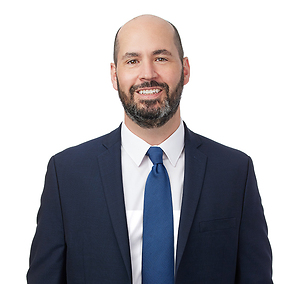Overview
We thought our readers would enjoy a recent roundtable discussion with some of our accomplished trial lawyers on lessons learned in the trenches to avoid litigation or liability. It highlights that Amundsen Davis could not only provide the consulting and advising that typical city attorneys do, but that we also have tremendous trial experience and this colors the advice we give our clients.
We led a discussion with Mike McGrory and Julie Proscia.
Moderator: For those of you that have defended civil rights cases at trial, what would you say have been the keys to achieving a defense verdict?
It starts with picking the right jury. In the current climate, with political tensions higher than we have seen in decades and a seemingly constant stream of media reports of police misconduct, many potential jurors have very strong feelings about cases involving the government (especially the police). It is absolutely critical that trial attorneys identify those potential jurors who may harbor adverse feelings, especially those that may be particularly outspoken or persuasive to the other jurors during deliberations and excuse them.
Mike McGrory: I have to agree, but I’ll add that at least until the recent proliferation of body cameras, these types of cases frequently boiled down to two contradictory versions of events. Therefore, officer credibility is key.
Moderator: Is that answer any different when defending an employment related claim?
Julie Proscia: Yes, although selection of the right jury is crucial, the underlying facts are also imperative. Specifically in employment law cases, judges and juries are looking to see if we had complaint policies and procedures in place and if the actions of the organization or individual were consistent with the applicable collective bargaining agreements, policies and procedures.
Moderator: Fair enough; so then what makes a municipal defendant more or less credible at trial?
Mike McGrory: Jurors expect police officers to behave in a certain way—professional, objective, direct, and factual. The more an officer can stick to the objective facts, the better.
Yes, that’s right. The government entity brings its history with it to trial. Basically everything a municipality does is in the public eye (and in the press), and jurors are likely to be familiar with past controversies. This is especially true if there is a history of similar claims made against the municipality, whether founded or unfounded. We can limit or bar evidence of any past controversies at trial, but we cannot erase any preconceptions a juror may hold in her mind. Again, this is why it is so important to select a good jury.
Moderator: What makes a municipal defendant more or less sympathetic at trial?
Mike McGrory: Sure, but also there are well-run police departments, and poorly-run police departments, and this will be apparent at trial. The more a jury believes that a department trains its officers well, encourages positive community interactions, and generally cares about doing the right thing, the more sympathetic they will be to the department.
Moderator: We’ve seen odd things happen with notes and records lately. Are good notes in your clients’ files a good thing or a bad thing?
Julie Proscia: Yes, good notes are great. However, sloppy, inconsistent, or discriminatory notes are worse than having no notes.
Moderator: Do any of you have any particular thoughts on the qualities that make a specific municipal officer or employee most effective on the witness stand?
Consistency is key. Where multiple witnesses from the municipality are testifying, to the extent possible the testimony needs to be consistent. Obviously memories and perceptions of an event can differ, but it is important that witnesses not make errant statements that have not been fully thought-through at trial or in depositions. It is especially important that a witness testify consistently at trial with her own deposition testimony if one was given earlier in the case. It is also important that witness testimony be consistent with any non-testimonial evidence that may be introduced, whether that be written records, video recordings, etc.
Moderator: We’ve had a great record getting cases dismissed through summary judgment (a procedure for dismissal at an early stage). From your experience is there anything the municipal defendants can do to make it more likely that any claims against them will receive favorable treatment at the summary judgment stage?
Julie Proscia: Consistency, consistency, consistency. Follow your stated policies, procedures, and practices.
Mike McGrory: Summary judgment is often won or lost based on deposition testimony. The best thing defendant witnesses can do is to prepare well for their depositions. Yet, officers, who are used to testifying, sometimes blow off preparing for their depositions. Counsel, too, must prepare for depositions, even when merely defending them. Counsel should have a summary judgment strategy in place and do everything possible to promote that strategy whether defending or taking depositions.
Cameras! It is often very difficult, if not impossible, to obtain summary judgment on police civil rights cases, especially 4th and 8th amendment cases involving excessive force. Where there is a clear video of the event, however, we are much more likely to prevail on a dispositive motion. In fact, there is published federal case law which indicates that a court should grant more weight to a video recording than any other evidence before it. I highly recommend the use of body cameras where a municipality has the budget. I believe that we will start to see gun cameras at some point (taser already equips some of its stun gun models with cameras) and police departments should welcome these devices as well.
Moderator: Let’s turn to avoiding claims altogether. How far can implementing best practices go in staving off claims?
Julie Proscia: Untrained or rogue supervisors become our own worst enemy. Training supervisors to ensure that we are consistently following our policies, CBA terms, and practices are imperative.
Moderator: Is there any training you would recommend to help our clients to better insulate themselves?
Mike McGrory: For police departments, documenting the reasons behind every action is key. A well-documented encounter may stave off a lawsuit entirely, and, if not, those documents may prove vital at summary judgment or trial stages.
Moderator: If I may sum up what our attorneys provided, it goes something like this: With good policies, procedures and training, our clients can significantly minimize their claim exposure. Good record keeping practices can help us to assure the best outcomes for our clients. Finally, when it comes to litigation and trial, having experienced trial lawyers who can work with the critical witnesses and convey a convincing theme to your arbitrator, judge, or jury can make a world of difference.

